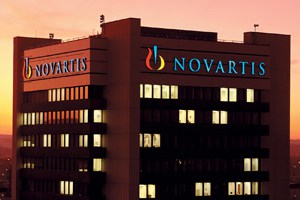
Studies published in the New England Journal of Medicine (NEJM) suggest Novartis’ interleukin-17A (IL-17A) inhibitor secukinumab outperforms the most widely-used biologic drug for plaque psoriasis.
The data reinforces secukinumab’s position among new generation of biologic drugs that promise to improve on older tumour necrosis factor (TNF)-blocking therapies like Pfizer’s $9bn-a-year Enbrel (etanercept).
One of phase III trials published in the NEJM – called FIXTURE – compared secukinumab directly to Enbrel and found that Novartis’ drug was significantly more effective in clearing the skin lesions that characterise the condition.
More than half of the secukinumab-treated patients achieved total or near-total clearance of their psoriasis lesions after 12 weeks’ treatment, compared to just 21 per cent of the Enbrel-treated group.
Patients on the IL-17A inhibitor continued to improve as treatment continued, with around 70 per cent having clear or almost clear skin right through to the end of the year-long trial. They also reported significantly better improvements in other symptoms such as itching, pain and scaling compared to Enbrel.
Secukinumab has been filed for approval in Europe, the US and Japan and could be in a position to launch the drug later this year or early in 2015. Analysts at Evaluate Pharma have predicted the drug could achieve sales of around $570m by 2018.
In fact, along with other new treatments for psoriasis such as AstraZeneca/Amgen’s brodalumab, Lilly’s ixekizumab, Celgene’s apremilast, secukinumab is expected to drive rapid growth in the global psoriasis market from a level of around $6bn in 2012 to almost $9bn by 2023, according to market research firm Visiongain.
Like secukinumab, brodalumab and ixekizumab both target IL-17 and are being positioned in the first instance as targeted drugs that can be used in the 50 per cent or so of patients who fail to get adequate relief using current therapies.
While the new biologics are raising the bar for treatment of moderate-to-severe plaque psoriasis, there is still a pressing need for improved therapies for milder cases of the disease where the role of expensive, injectable biologic drugs is harder to establish.
Apremilast is particularly interesting in that regard, as it is a small molecule inhibitor of type-4 cyclic nucleotide phosphodiesterase and can be dosed orally, with what appears to be a benign safety profile compared to other psoriasis treatments.
Apremilast was approved in the US in March with the brand name Otezla for psoriatic arthritis and could add a plaque psoriasis indication later this year.




